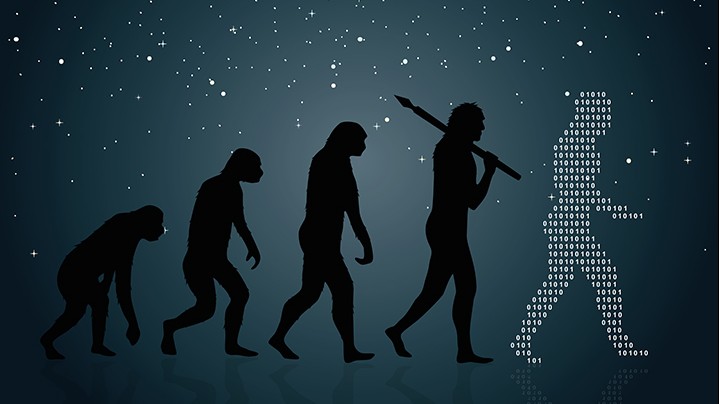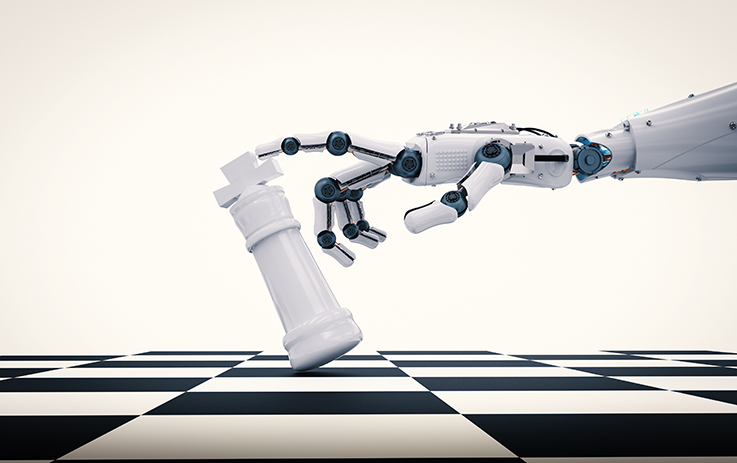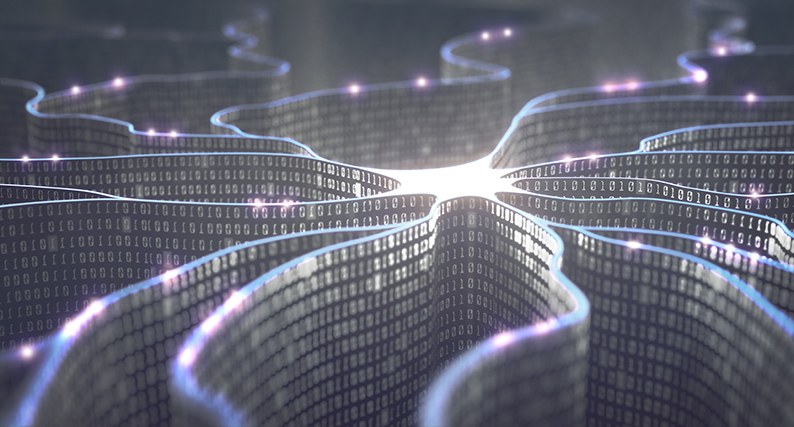When Dealing With Artificial Intelligence, Companies Should Put Humans First
Artificial Intelligence brings more business opportunities than we can predict. While the future seems more uncertain than ever, one thing will hardly change: Successful companies are companies that maintain strong ties with their customers. And, at least for now, customer still equals human.

© 00Mate00 | istockphoto.com
Before we discuss Artificial Intelligence: Have you ever wondered why there is no other species quite like us? Why do humans not only rule the planet, but rule it with so much more power than any other species? Why is there no runner-up trying to snatch the crown from us?
The most obvious answer is that we are so much better than everybody else: We are more cooperative; we run efficient societies. We are, most importantly, more intelligent.
This answer is, of course, not only arrogant, but also wrong. There are animals far more sociable than we are: for instance, bonobos. Others are much better at living together: for instance, ants. And proof that our intelligence is overrated can be found at the nearest zoo, where any chimpanzee toddler outperforms any human toddler in basic intelligence tests – until we give our own offspring the privilege of our educational system (although this is likely to be coincidental).
But aren’t these singular traits? Are humans not the best factotums, the fittest species in terms of adaptability? Maybe we are today, but this was not always the case. Consider the fate of Neanderthals: They could do nearly everything that we, the homo sapiens, could do, nearly as well as we did. And they were much stronger than we were. Still, whatever their fate was, whether we ate them, or stole their food or forced them into a sex-based merger: They are no longer around. We are.
What do Neanderthals have to do with Artificial Intelligence?
The lesson learned here is that there can only be one. Of the many different possible scenarios that Nick Bostrom describes in his book “Superintelligence,” there is one that roughly goes like this: Currently, there are different entities working on different Artificial Intelligence systems. They may learn from each other or prefer to keep their findings to themselves. There is competition among these systems. Deciding factors may be financing, regulation, availability of experts, access to customers, and testing environments. Designs differ, as do strategies. For a long time, it looks as if there is enough space for everybody.
Then, thanks to a stroke of genius or, more likely, thanks to exponential growth, one of these systems that has co-existed for so long gains an advantage over the others.
Within such a short period of time that we won’t see it coming, Bostrom argues, the leader will escape the reach of all competitors. Due to exponential growth and the resulting new allocation of resources, the winner will never see another contestant.
Just as humans rule the planet, that system will rule anything that has to do with the Artificial Intelligence ecosystem. And even if you don’t like the comparison with Neanderthals, take a look at the recent developments in the tech industry; mainly, the evolution of platforms.
Successful platforms have enormous powers and little to fear from uprising competition. Artificial Intelligence platforms are likely to take this reality to a whole new level.
Companies shouldn’t put technology first. They should put humans first.
What does this mean for a company trying to grow with AI?
Companies exploring Artificial Intelligence should keep three issues in mind:
Make or buy? As with any new technology, companies should ask themselves the same question with Artificial Intelligence. If the one-player scenario described above should come true, those now deciding to make will know better. But monads will be monads. Just as evolution does not keep them from trying out cell division, there will always be new companies giving their own Artificial Intelligence a chance. There is nothing wrong with that. Just as long as they know that no matter what their outcome, it will arrive in a world that is anything but formless and void
Use the cloud? Any company using Artificial Intelligence services provided by a vendor should certainly consider the cloud. Of all the advantages the cloud has to offer, one is especially relevant in terms of Artificial Intelligence: scalability. Partnering with a service provider (and probably a colocation data center) allows companies to deliver products that won’t be buried under by their own success, as additional hardware and bandwidth can be purchased on very short notice.
What about data? Most importantly, companies should make sure they have control over their data. The first reason is to avoid vendor lock-in and keep the company’s options open. The second reason is because companies should treat data as one of their most important assets. Artificial Intelligence may change the platform game. Because in today’s platform economy, customer relations are one of companies’ most valuable assets. The benefit of platforms is not about having the technology. It’s about having the customers.
Therefore, companies getting involved with Artificial Intelligence shouldn’t put technology first. They should put humans first.




